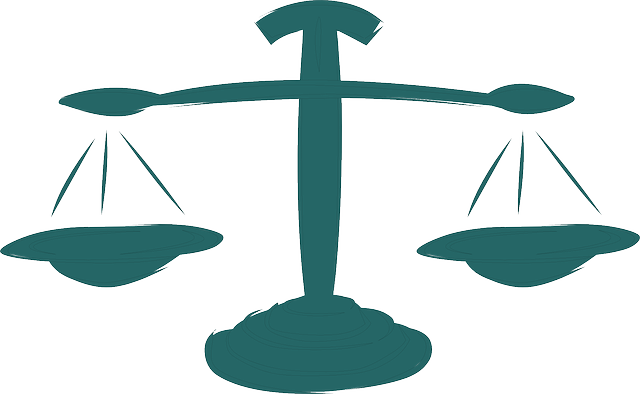Regulatory compliance requires understanding and staying ahead of industry changes. Preparation Tips for Administrative Law Hearings include meticulous record-keeping, regular audits, tracking legal precedents, strategic resource allocation, and engaging experienced legal professionals. Documenting evidence and post-hearing analysis are critical components, ensuring robust defense strategies and continuous compliance. Specialized white-collar crime attorneys offer comprehensive guidance, minimizing risks and protecting company integrity.
Navigating administrative law hearings can be a complex landscape, filled with regulatory compliance issues that demand meticulous attention. This comprehensive guide offers preparation tips for administrative law hearings, focusing on essential elements like understanding regulatory essentials, anticipating common hearing pitfalls, and strategically documenting evidence. By following these expert-backed strategies, individuals and organizations can ensure robust legal defense and seamless post-hearing compliance.
- Understanding Regulatory Compliance Essentials
- Preparing for Common Law Hearing Pitfalls
- Documenting Evidence: Key to Success
- Strategic Legal Representation: Your Defense
- Post-Hearing Steps: Ensuring Continuous Compliance
Understanding Regulatory Compliance Essentials

Regulatory compliance goes beyond mere adherence to laws and regulations. It involves a deep understanding of the industry’s evolving landscape and proactive measures to stay ahead of changing rules. For businesses, especially those involved in high-stakes cases with an unprecedented track record, preparation tips for administrative law hearings are crucial. This includes meticulous record-keeping, regular audits, and staying informed about relevant legal precedents and regulatory updates.
By prioritizing open communication between departments and allocating resources effectively towards compliance initiatives, companies can mitigate risks associated with non-compliance. Moreover, leveraging the expertise of legal professionals experienced in administrative law can significantly enhance their ability to navigate complex hearings, ensuring a robust defense or aggressive prosecution strategy based on a solid grasp of regulatory essentials.
Preparing for Common Law Hearing Pitfalls

Preparing for Common Law Hearing Pitfalls
Navigating Administrative Law Hearings can be a complex task, filled with unique challenges distinct from traditional court proceedings. To ensure success for his clients, legal professionals must arm themselves with comprehensive preparation strategies. One of the key aspects to focus on is anticipating and mitigating potential pitfalls that often arise in these hearings. A thorough understanding of the regulatory landscape and the specific rules governing the hearing process is paramount. This includes knowing the scope of evidence admissible, procedural guidelines, and the rights of both parties.
By mastering these preparation tips for administrative law hearings, legal representatives can confidently guide their clients through all stages of the investigative and enforcement process. An unprecedented track record of successful outcomes often stems from meticulous planning and a deep understanding of the unique dynamics involved in such proceedings. This proactive approach ensures that any surprises are addressed promptly, enhancing the chances of a favorable outcome for your clients.
Documenting Evidence: Key to Success

Documenting evidence is a crucial aspect of navigating Regulatory Compliance Issues, especially when preparing for administrative law hearings. It’s a cornerstone of success that cannot be overlooked, particularly in cases involving complex regulatory frameworks and white collar defense. Comprehensive documentation demonstrates an entity’s or individual’s diligence, transparency, and adherence to legal requirements, which are vital elements in building a robust defense strategy.
Effective preparation tips for these hearings include meticulous record-keeping. This involves not just gathering relevant documents but also organizing them logically and chronologically. It’s essential to ensure that evidence is accurate, complete, and easily interpretable. Given the intricate nature of regulatory compliance cases, involving both corporate and individual clients, a structured documentation process aids in presenting a clear narrative during hearings. This, in turn, fosters engagement with the philanthropic and political communities, as transparency builds trust and encourages collaboration in ensuring fair legal outcomes.
Strategic Legal Representation: Your Defense

Navigating regulatory compliance issues can be a complex task for any business, especially when facing potential administrative law hearings. Strategic legal representation is your first line of defense. Engaging experienced attorneys who specialize in white-collar and economic crimes is crucial. These experts will not only guide you through the intricate legal landscape but also prepare you with comprehensive preparation tips for administrative law hearings.
They ensure that all necessary documents are in order, helping to avoid costly delays or dismissals. Their deep understanding of your respective business and industry allows them to craft a robust defense strategy tailored to your unique situation. This proactive approach not only minimizes risks but also strengthens your ability to resolve issues effectively, protecting the integrity of your business.
Post-Hearing Steps: Ensuring Continuous Compliance

After a successful Preparation for Administrative Law Hearings, the real work begins – ensuring continuous compliance moving forward. Post-hearing, it’s crucial to analyze the outcome and identify areas where your organization can excel or improve. This involves meticulously reviewing the administrative law judge’s decision, understanding the key findings, and implementing necessary changes to avoid future non-compliance issues. One effective strategy is to create a comprehensive post-hearing action plan, detailing specific steps to address any gaps identified in the hearing process.
By focusing on continuous compliance, organizations can mitigate risks and maintain regulatory integrity. This proactive approach not only demonstrates a commitment to adherence but also fosters trust with regulatory bodies. Through meticulous post-hearing analysis, you can develop winning challenging defense strategies, enhancing your organization’s ability to navigate future hearings and achieve extraordinary results, including jury trials, by presenting a robust and compliant defense.
Navigating regulatory compliance issues requires a strategic approach, from understanding essential requirements to post-hearing follow-up. By preparing thoroughly, documenting evidence meticulously, and ensuring continuous compliance, individuals and organizations can successfully defend against administrative law hearing pitfalls. These preparation tips are crucial in safeguarding rights and maintaining integrity within complex legal landscapes.






